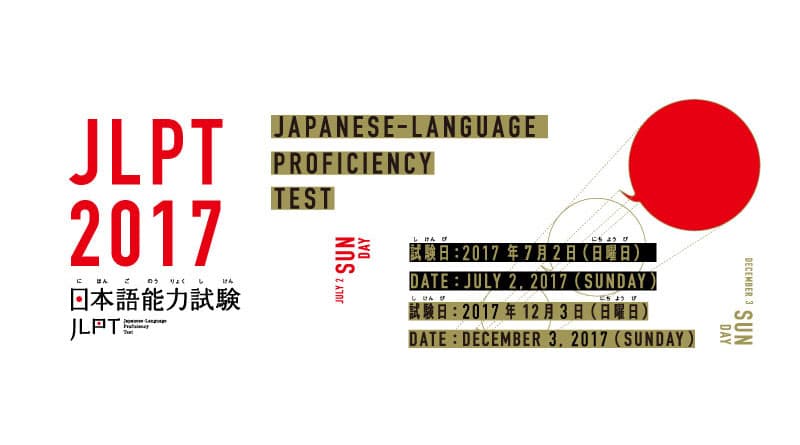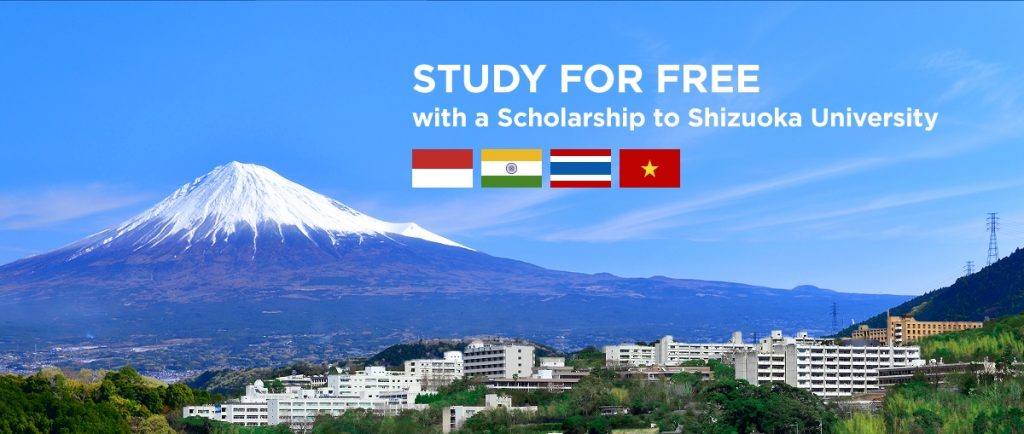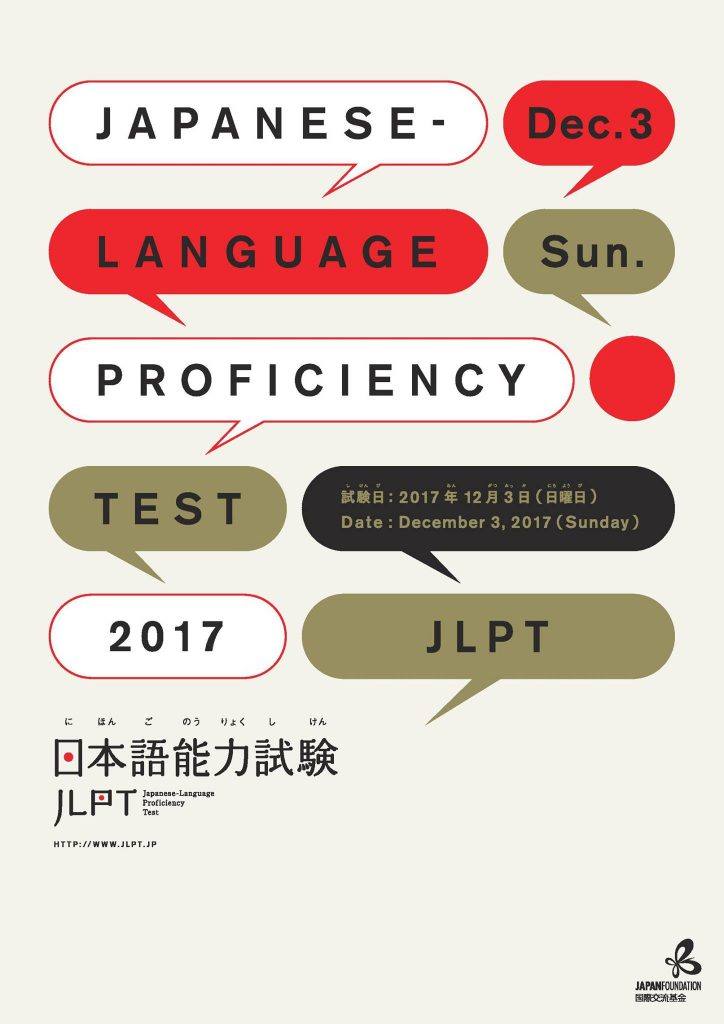Those wishing to apply for a scholarship should meet one of the criteria listed below:
- Recommended by a Japanese embassy or consulate general (Embassy Recommendation).
- Recommended by the Japanese university which will accept you (University Recommendation).
- Selected by the Japanese university in which you are currently enrolled if you are a privately-financed student already studying in Japan (Domestic Selection).
1. Japanese Government Scholarships and Their Content
(Fiscal 2019)
| Research student | Teacher training student | Undergraduate student | Japanese studies student | College of technology student | Special training college student | |
|---|---|---|---|---|---|---|
| Level of studies | Graduate school level | Undergraduate level | ||||
| Eligibility requirement | University or college graduate | University, college graduate or equivalent | Secondary school graduate or equivalent | University student (undergraduate level) | Graduates of secondary schools or equivalent | |
| Age limit (at time of granting) | Under 35 | At least 17 and under 25 | At least 18 and under 30 | At least 17 and under 25 | ||
| Duration | Maximum 2 years including Japanese-language training | Maximum 1 year 6 months including Japanese-language training | 5 years including Japanese-language training (7 years for medicine, dentistry, pharmacy and veterinary science) | One academic year | 4 years including Japanese-language training(4 and a half years for merchant marines studies) | 3 years including Japanese-language training |
| Preliminary Japanese-language training | 6 months (54 universities such as Hokkaido University) Those with sufficient Japanese proficiency are not required to go through preliminary Japanese- language training. |
1 year (Tokyo University of Foreign Studies and Osaka University) |
None | 1 year (Independent Administrative Institution: Japan Student Services Organization, Tokyo Japanese Lanugage Education Center) |
1 year (Bunka Institute of Language, Independent Administrative Institution: Japan Student Services Organization, Osaka Japanese Lanugage Education Center) |
|
| Fields of study | Major in field of specialty at a graduate school | Special training at a teacher training department | Undergraduate education | Japanese language or special training related to Japan | Third year college of technology courses | Post secondary courses |
| Designated countries | Worldwide (168 countries and regions) | Developing countries, etc. (64 countries and regions) | Worldwide (100 countries and regions) | Worldwide (74 countries and regions) | Developing countries (40 countries and regions) | Developing countries, etc. (49 countries and regions) |
| Planned number of new scholarship recipients | 4,042 people | 89 people | 460 people | 190 people | 86 people | 90 people |
| Scholarship stipend | ¥143,000~148,000 per month | ¥117,000~120,000 per month | ||||
| Tuition | Tuition for national universities and Institute of National College of Technology waived; tuition for public and private universities paid for by the Ministry of Education, Culture, Sports, Science and Technology | |||||
| Travel allowance | Roundtrip fare (air ticket) provided | |||||
| Embassy recommendation | Yes | Yes | Yes | Yes | Yes | Yes |
| University recommendation (overseas application) | Yes | No | No | Yes | No | No |
| University recommendation (local acceptance) | Yes | No | Yes (For the final only) | No | No | No |
| Examination Questions | Click here | – | Click here | – | Click here | Click here |
Examinations required for Embassy recommendation
| Research students | Japanese, English (only applicants) |
|---|---|
| Teacher training students | Japanese and English (Both for reference purposes) |
| Undergraduate students | Japanese , English, mathematics and science (Only science faculty examinees are required to choose two out of the following three subjects: chemistry, physics or biology) |
| Japanese studies students | Japanese |
| College of technology students | Japanese , English,mathematics and physics or chemistry |
| Special training college students | Japanese ,English and mathematics |
2. Privately Financed Foreign Students
Privately financed foreign students are accepted at Japanese universities and graduate schools, etc., in one of two ways:
i)The student is accepted after domestic or foreign selection upon applying directly to the school from his or her own country.
ii)The student first enrolls in a private Japanese-language institute and completes preparatory education of about one-year in duration. The student then applies to the school of his or her choice.
In either case, a student needs to go through the selection process designated by the particular university or graduate school. In many cases, a student will have to sit for an entrance examination in Japan.
Because the process differs according to the university(http://www.jasso.go.jp/study_j/schinfo_e.html) or graduate school(http://www.jpss.jp/eng/index.html), please be sure to confirm the selection process.
What examinations do I need to take in order to enroll in a Japanese university?
In order to be accepted at a Japanese university, you will need to pass the examinations (including those listed below) designated by the university.
For details, please refer to Japan Student Services Organization (JASSO)
(http://www.jasso.go.jp/en/)
Gateway to Study in Japan
(http://www.g-studyinjapan.jasso.go.jp/en/)
web site or inquire directly to the school that you would like to apply to.
1)Examination for Japanese University Admission for International Students
The Examination for Japanese University Admission for International Students (EJU) (http://www.jasso.go.jp/eju/index_e.html) is a test carried out by the Japan Student Services Organization (JASSO) since 2002. It serves to evaluate whether foreign students who wish to enroll at the undergraduate level at a Japanese university, etc., possess the necessary Japanese language skills and basic academic abilities to study at such institutions. EJU is also available in designated areas overseas and some Universities, etc., use the EJU score to grant pre-arrival admission without the need for prospective students to travel to Japan. There is a reservation program for the Honors Scholarships for Privately Financed International Students that is available after enrollment to a university, etc., to examinees who achieve a superior score on the EJU.
– FY2016 EJU Guidelines –
http://www.jasso.go.jp/en/eju/index.html
2)Japanese Language Proficiency Test
The Japan Foundation (overseas examinations) and the Japan Educational Exchanges and Services (domestic examinations) hold the Japanese Language Proficiency Test to evaluate the level of examinees’ Japanese language proficiency.
http://www.jlpt.jp/e/
What do I need to do to enroll in a graduate school?
Students wishing to enroll in a full-time master’s or doctor’s program as well as those wishing to become research students generally need to go through a documentary examination or entrance examination either in Japan or abroad. It may also become necessary for the student to find and obtain the informal consent of a supervising instructor prior to application. Please inquire at the graduate school to which you intend to apply for details.
3. Short-term Study and Student Exchange Programs
Short-term study refers primarily to studying abroad while still enrolled at a university in one’s home country on the basis of inter-university exchange agreements. The objective is not necessarily to obtain a degree but rather acquire a foreign language, experience a foreign culture or study at a university, etc. in a foreign country or region. The student receives education for a semester or several semesters within an academic year, acquiring credits or receives research guidance. Classes are carried out in the language of the country where the educational facility is located or in a foreign language.
Student exchange refers to a university dispatching a foreign student to another university with which it has an inter-university exchange agreement and having the other university accept the student.Credit acquired at the university where the exchange student is studying is generally calculated into the credits earned at the university where the exchange student is originally enrolled. Depending on the number of credits earned, it becomes possible for the student to graduate from the university where he/she is originally enrolled when the standard number of years necessary for acquiring a degree is reached. Tuition is ordinarily paid to the university where the exchange student is originally enrolled. However, there is a need to confirm how tuition should be paid while abroad as an exchange student or how credits are handled as they may differ from university to university.
Procedures for Becoming an Exchange Student
Almost all Japanese universities have an inter-university exchange agreement with a foreign university. Students desiring to become an exchange student at a Japanese university need to select a university from among the Japanese universities with which his/her university has an inter-university exchange agreement. S/he then makes an application for student exchange with the university in which s/he is enrolled. After going through a screening at his/her university, an application is then made to the university s/he wants to study at as an exchange student. This application is made through his/her university. Going abroad to study as an exchange student becomes possible when agreement is obtained from the university that s/he has chosen. Please keep in mind that even if there is an inter-university exchange agreement with the university, not all credits necessarily become object to exchange.
Examples of Universities Accepting Short-term Exchange Students
Many Japanese universities accept short-term exchange students. Examples of a national university and a private university follow for your reference.
– Kyushu University (national university)
Outline of the university and acceptance of foreign students
Interview with an exchange student
– Waseda University (private university)
Outline of the university and acceptance of foreign students
Interview with an exchange student
Short-term Study Programs for Foreign Students in which Classes Can Be Taken in English (Undergraduate Level)
Scholarships for Short-term Study in Japan
1. JASSO International Student Scholarship for Short-term Study in Japan
This program provides scholarships to qualified foreign students who are accepted by Japanese universities on the basis of student exchange agreements, etc. on a short-term basis between three months and one year.
Japan Student Services Organization (JASSO) website
http://www.jasso.go.jp/scholarship/short_term_e.html
2. Japan – East Asia Network of Exchange for Students and Youths (South Korea)
Japan – East Asia Network of Exchange for Students and Youths (JENESYS Programme) is an exchange program which invites youths, centering on those from countries participating in the East Asia Summit, to Japan. JENESYS Programme (South Korea) is carried out as part of this program. By commission of the Japan-Korea Cultural Foundation, the Japan Student Services Organization provides support to qualified students enrolled in a South Korean university who are accepted by Japanese universities on the basis of student exchange agreements, etc.
Japan Student Services Organization (JASSO) website (Japanese only)
http://www.jasso.go.jp/scholarship/jenesys_korea.html
3. Japanese Government (Monbukagakusho) Scholarship “Japanese Studies Program”
The Japanese Government (Monbukagakusho) Scholarship system was inaugurated in 1954 and has accepted more than 83,000 (as of the end of fiscal year 2009) foreign students from about 160 countries and regions worldwide. The Japanese Studies Program is for undergraduates who are enrolled in a foreign university. The term is one academic year. Students are accepted for this scholarship from 74 countries and regions around the world.
Shared by : NEXS Japanese Language Center
Konsultan Pendidikan Profesional dan Terpercaya di Indonesia, NEXS Japanese Language Center
Dapatkan FREE TRIAL JAPANESE CLASS berdurasi 60 menit dengan materi pembelajaran pengenalan Bahasa Jepang, pengenalan Huruf Kana serta simulasi JLPT
NEXS Japanese Language Center, Pilihan tepat Belajar Bahasa Jepang di Surabaya!
🌟 NEXS Japanese Language Center 🌟
Kursus Bahasa Jepang di Surabaya (Kelas Regular & Private)
Conversation Class Bahasa Jepang di Surabaya
Kursus Bahasa Jepang Online
Study in Japan
Kelas Persiapan JLPT di Surabaya
Kelas Bahasa Jepang ONLINE
Konsultasi pendidikan ke Jepang di Surabaya
Jasa Penerjemahan Bahasa Jepang di Surabaya
Program Study Tour ke Jepang
Head Office NEXS Japanese Language Center:
Komplek Ruko Transmart Rungkut Blok A-25
Jl. Raya Kalirungkut No. 23 Surabaya 60293
TELEPHONE: (031)8781033
WA : 081335555002
ID LINE: nexs.center
e-mail: [email protected]
website: www.nexs.co.id





